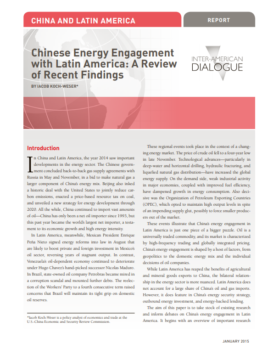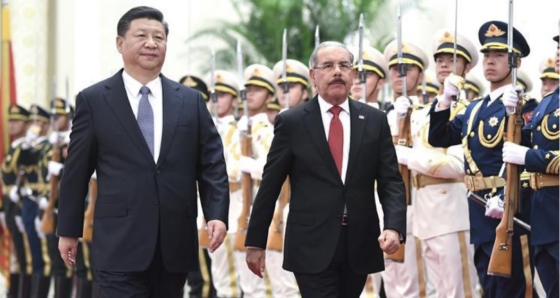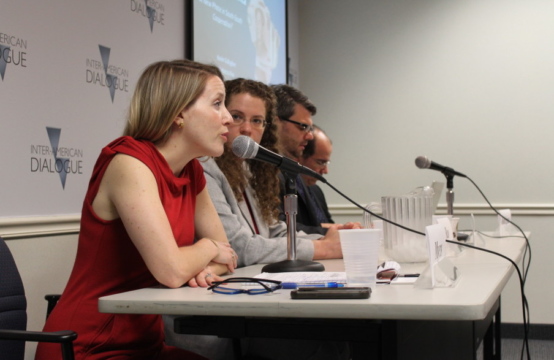 Video
Video
A New Phase in China-LAC Economic Relations?
China’s economic footprint in the region is expanding at a rapid pace. Can Latin American societies keep up?
China’s economic footprint in the region is expanding at a rapid pace. Can Latin American societies keep up?
Brazil’s oil and gas and electricity sectors are an important destination for Chinese direct investment.
The US’ standing as the main consumer of Latin America’s oil exports is unraveling as China emerges as a major consumer of global oil supplies.
Comparatively high rates of energy use in China and Brazil have led to investment in many forms of energy, including renewables.
Brazil must focus on reforms that will make Petrobras more competitive and create an attractive investment environment.
Ten years on, how has the BRI evolved? And what should we expect from the initiative as it enters its second decade?
This week, Margaret Myers, director of the Inter-American Dialogue’s Asia and Latin America Program, spoke with Newsweek about the significance of upcoming presidential elections in Paraguay for the country’s relationship with Taiwan, and Taiwan’s relations with the LAC region more broadly.
A recent Economist article discussing Sino-Argentine relations cited to commercial loan statistics from the Asia and Latin America Program’s China-Latin America Commercial Loans Tracker.
Insights from Karin Costa Vazquez on Lula’s recent re-election and its significance for Brazil’s relations with its Asian partners and in multilateral institutions.
Testimony by Program Director Margaret Myers on China’s Role in Latin America and the Caribbean to Senate Foreign Relations Committee.
On June 14, the Atlantic Council and the Energy Futures Initiative held a webinar on the role of natural gas in the transition to zero-carbon energy systems. Lisa Viscidi, director of the Energy, Climate Change & Extractive Industries Program at the Dialogue, spoke about financing natural gas infrastructure in Latin America.
China has become an essential, reliable partner for Latin American nations, while the United States, under the Trump Adminstration, has alienated itself away from longtime regional partners.
On November 14, 2019, the Inter-American Dialogue hosted the event, “5G and the Evolution of Smart Cities in Latin America and the Caribbean,” featuring panelists Eric Crabtree, Chief Investment Officer of the International Finance Corporation; Luis Fiallo, Vice President of China Telecom Americas; Ed Roach, Vice President of Regulatory Compliance and Associate General Counsel, SBA Communications; and Rachel Samrén, EVP and Chief External Affairs Officer of Millicom. Ernesto Muyshondt, mayor of San Salvador, El Salvador, provided the keynote address while Margaret Myers, director of the Asia and Latin America Program at the Inter-American Dialogue moderated the panel discussion.
This report offers an extensive review of the English, Chinese, Spanish, and Portuguese literature on Chinese overseas energy sector engagement, highlighting a sub-set of issues especially relevant to policymakers. These include China’s effect on global commodity markets, the country’s outbound investment policies, and the extent to which China has a centralized strategy for overseas energy resource acquisition. The report concludes with timely suggestions for further research on Chinese energy engagement in the Americas.
The Dominican Republic’s president, Danilo Medina, in late March met with Chinese Vice Premier Hu Chunhua in Santo Domingo, where they agreed on new economic cooperation accords and followed up on agreements that the two countries made last year. How much have ties with China paid off for the Dominican Republic?
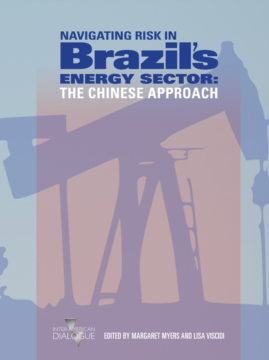
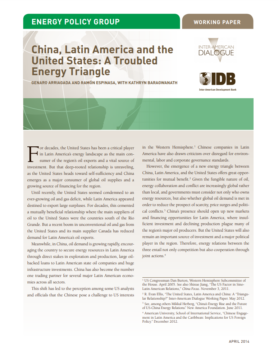
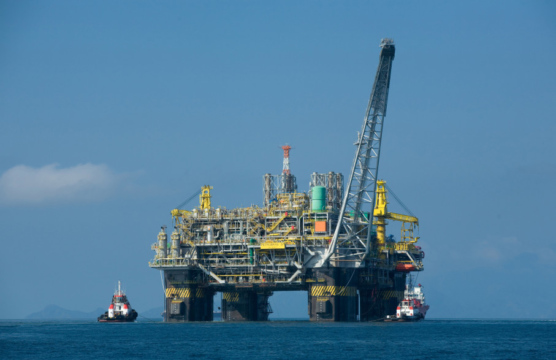
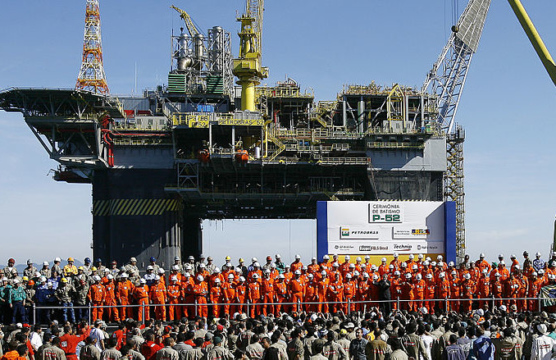
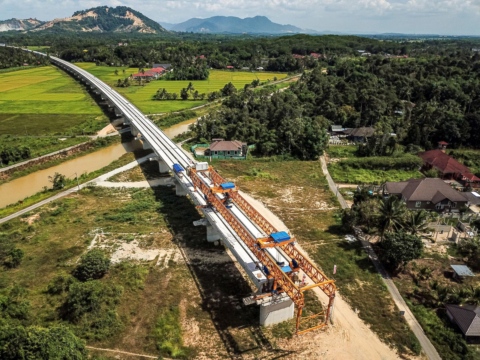
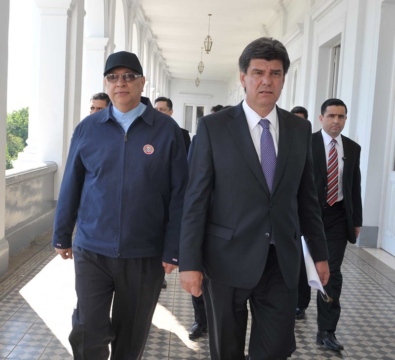
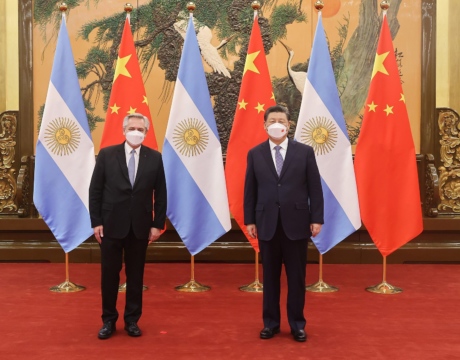
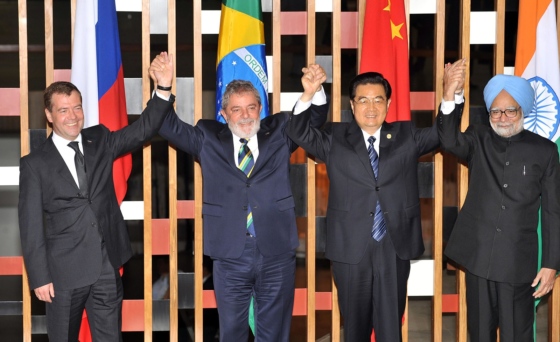
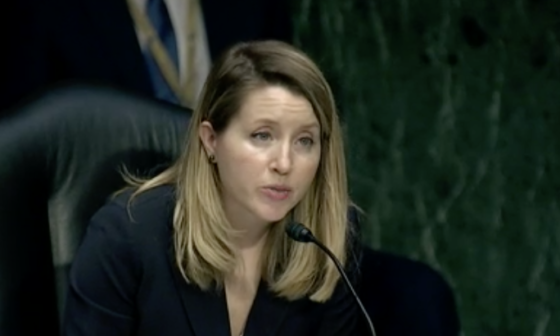 Video
Video
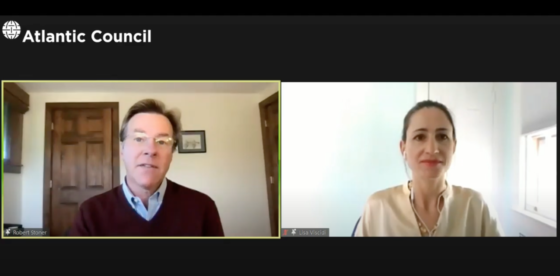 Video
Video

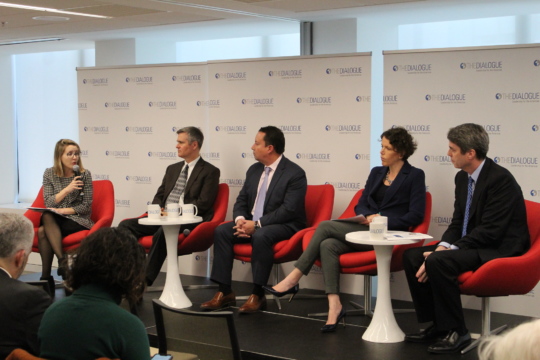 Video
Video
